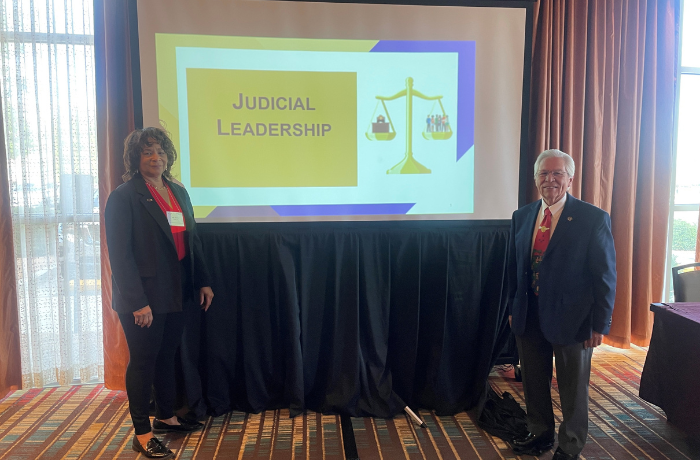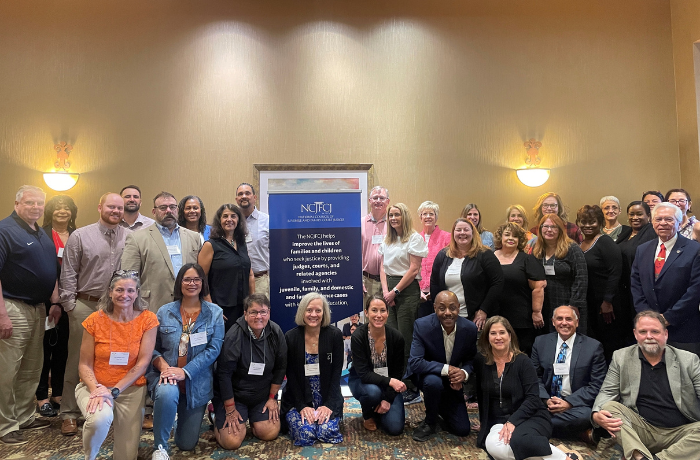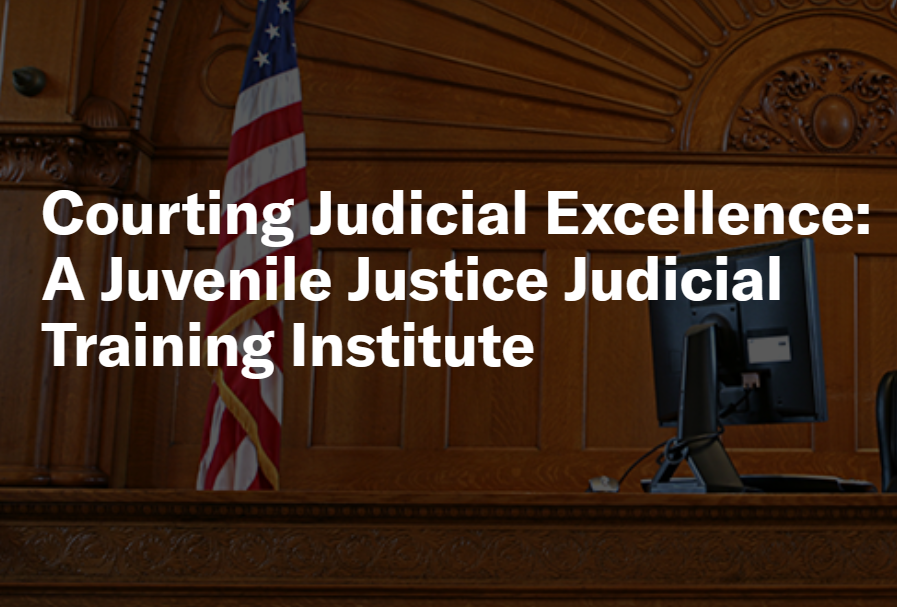Most states do not have specialized family court judges, let alone judges dedicated to delinquency cases. Even in states that do have a family court structure, juvenile justice often gets short shrift compared to child welfare in terms of court attention, resources, and improvement efforts. In addition, most states do not provide juvenile court judges with the training, decision-making tools, data, and support systems necessary to make decisions consistently aligned with research and best practice that is specific to juvenile cases.
Many communities across the country are experiencing increasing concern and divisiveness on responses to juvenile crime and related juvenile justice reforms. Juvenile court judges are increasingly required to determine how best to balance community safety, public sentiment, media scrutiny, and political pressure with a commitment to research-based approaches and data-driven decision-making on juvenile crimes and punishments. States and the field, now more than ever, need to ensure that juvenile court judges are supported in making these difficult decisions and provided the tools and support commensurate with their outsized authority and responsibilities.
The Council of State Governments (CSG) Justice Center, in partnership with the National Council of Juvenile and Family Court Judges (NCJFCJ), proposed a follow-up implementation initiative from the SJI-funded study and report, Courting Judicial Excellence in Juvenile Justice: A 50-State Study. The study examined how juvenile delinquency cases are handled in all 50 states.
The Juvenile Court Transformation Initiative advances the recommendations outlined in the report at both the state and national levels by: 1) providing intensive technical assistance for three states to strengthen juvenile court policy and practice, in alignment with research on what works to improve public and youth outcomes; and 2) creating an unprecedented juvenile justice court training institute to serve as a resource for judges who handle delinquency cases.

“Earlier this year in September, I was honored to be a part of the faculty for the first-of-its-kind judicial training institute on Juvenile Justice held in Albuquerque, New Mexico. Funded through a partnership with the State Justice Institute, the institute was a four-day training event and was designed and implemented through a partnership of the Council of State Governments (CSG) Justice Center and the National Council of Juvenile and Family Court Judges (NCJFCJ).
“The importance of this juvenile justice training institute is due to the limited, if any, judicial education, or training received by the multitude of judges who decide the hundreds of thousands of cases involving children who are involved in the courts across the nation involving juvenile delinquency matters. There is a limited number of guidelines or recommended practices to help guide judicial decision making. Indeed, some judges do not have any mandatory judicial education and limited mentoring before deciding these types of matters that involve children and public safety. A well-educated judiciary is vital to the safety of our communities and in the best interest of our children involved in our juvenile and family courts across the nation.”
Judge Carr, NCJFCJ President
“The Courting Judicial Excellence Juvenile Training Institute addressed fundamental aspects of juvenile justice practice including adolescent brain development, the use of science and research and its application to juvenile court practice. Particularly its application to critical decision-making points including intake, diversion, adjudication, detention, waiver, case management and placement decisions. Further, the training provided juvenile justice judges with the information necessary to request and use forensic evaluations for children in juvenile court including the importance of screening and assessment and the role of Risk, Need and Responsivity at key decision points. The Institute addressed effective, and ineffective practices, that improve outcomes for children at risk and improve public safety. The Institute also included the importance of judicial leadership in using data to drive services, interventions, and outcomes as well as the need to promote racial equity. The success of the Juvenile Justice Institute confirmed the need to further develop the capacity of judges to support, divert and redirect youth to appropriate and fair justice options while maintaining public safety.”
Judge Carr, NCJFCJ President
“Support from CSG and NCJFCJ has brought a heightened focus to juvenile justice issues throughout Montana’s state court system. I’ve benefited from their knowledge, skill and expertise throughout the course of our project. Their work has sparked a number of pivotal conversations among judges, juvenile probation officers, court administrators, prosecutors and defense attorneys. I believe this project will benefit our state’s youth court system for many years to come.”
John W. Parker, District Court Judge

“I loved everything about the training. All of it was informative. If I had to choose a favorite part, it would probably be the adolescent brain development session, the impact of detention and GPS and the tour/discussion with the youth.”
Training Institute Participant
“I really enjoyed hearing from the other judges from around the US and the world regarding what has worked and what has not worked in their courtroom. I enjoyed learning how to have a new perspective in juvenile justice.”
Training Institute Participant
Access the Council of State Governments (CSG) Justice Center’s Courting Judicial Excellence homepage here: https://csgjusticecenter.org/projects/courting-judicial-excellence/



